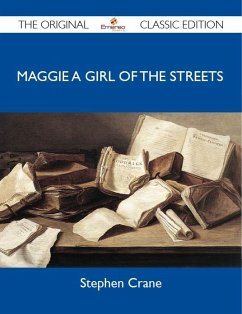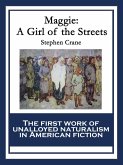Stephen Crane's "Maggie: A Girl of the Streets" is a poignant exploration of urban poverty and the harsh realities of life in late 19th-century America. Written in a stark, naturalistic style, Crane utilizes vivid imagery and a candid narrative to depict the dismal existence of his protagonist, Maggie Johnson, as she navigates the treacherous streets of New York City. The book presents a compelling social critique, showcasing how environment and societal forces converge to shape individual destinies, all while challenging the romanticized notions of urban life prevalent during the literary period. Crane, a self-taught writer born into a middle-class family, drew on his experiences as a journalist and his observations of the grueling realities faced by the underprivileged. His own encounters with poverty and his belief in the influence of circumstance over character are apparent throughout the novel. This work emerged from a broader literary movement that questioned morality and societal structure, positioning Crane as a key figure in American literary realism. "Maggie: A Girl of the Streets" is essential reading for anyone interested in the interplay between environment and identity, as well as the struggles of those on society's margins. It offers a powerful glimpse into the human condition, and Crane's masterful prose ensures that Maggie's story remains both haunting and unforgettable.
Dieser Download kann aus rechtlichen Gründen nur mit Rechnungsadresse in A, B, BG, CY, CZ, D, DK, EW, E, FIN, F, GR, H, IRL, I, LT, L, LR, M, NL, PL, P, R, S, SLO, SK ausgeliefert werden.









